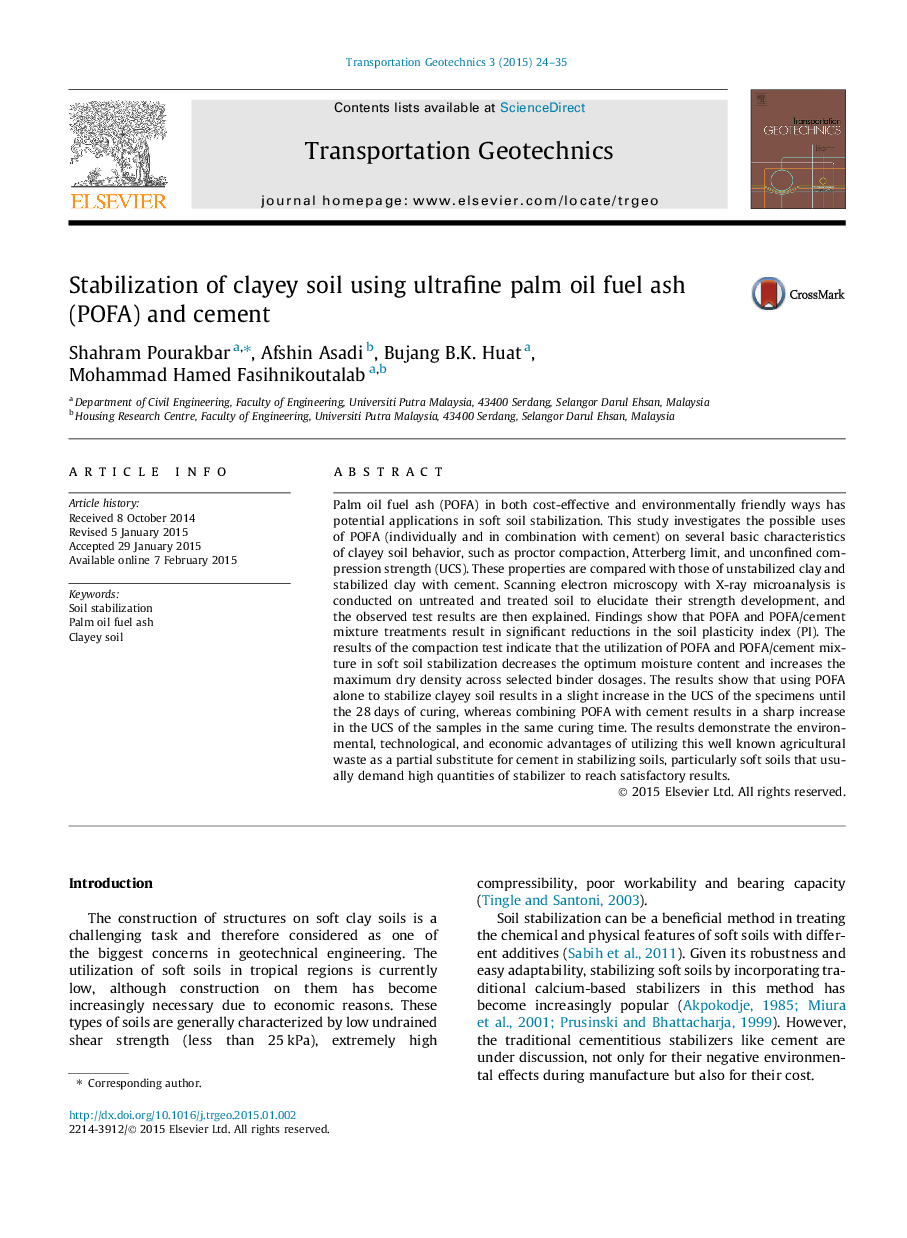| Article ID | Journal | Published Year | Pages | File Type |
|---|---|---|---|---|
| 310292 | Transportation Geotechnics | 2015 | 12 Pages |
Palm oil fuel ash (POFA) in both cost-effective and environmentally friendly ways has potential applications in soft soil stabilization. This study investigates the possible uses of POFA (individually and in combination with cement) on several basic characteristics of clayey soil behavior, such as proctor compaction, Atterberg limit, and unconfined compression strength (UCS). These properties are compared with those of unstabilized clay and stabilized clay with cement. Scanning electron microscopy with X-ray microanalysis is conducted on untreated and treated soil to elucidate their strength development, and the observed test results are then explained. Findings show that POFA and POFA/cement mixture treatments result in significant reductions in the soil plasticity index (PI). The results of the compaction test indicate that the utilization of POFA and POFA/cement mixture in soft soil stabilization decreases the optimum moisture content and increases the maximum dry density across selected binder dosages. The results show that using POFA alone to stabilize clayey soil results in a slight increase in the UCS of the specimens until the 28 days of curing, whereas combining POFA with cement results in a sharp increase in the UCS of the samples in the same curing time. The results demonstrate the environmental, technological, and economic advantages of utilizing this well known agricultural waste as a partial substitute for cement in stabilizing soils, particularly soft soils that usually demand high quantities of stabilizer to reach satisfactory results.
